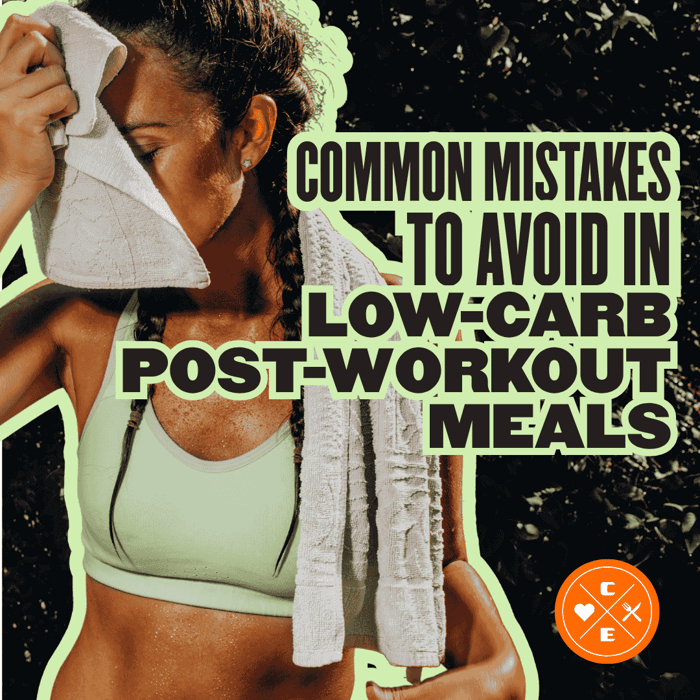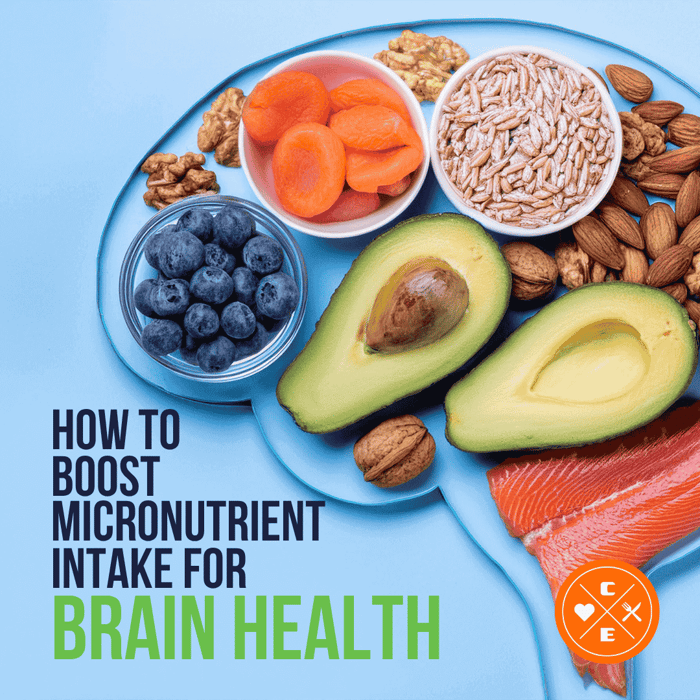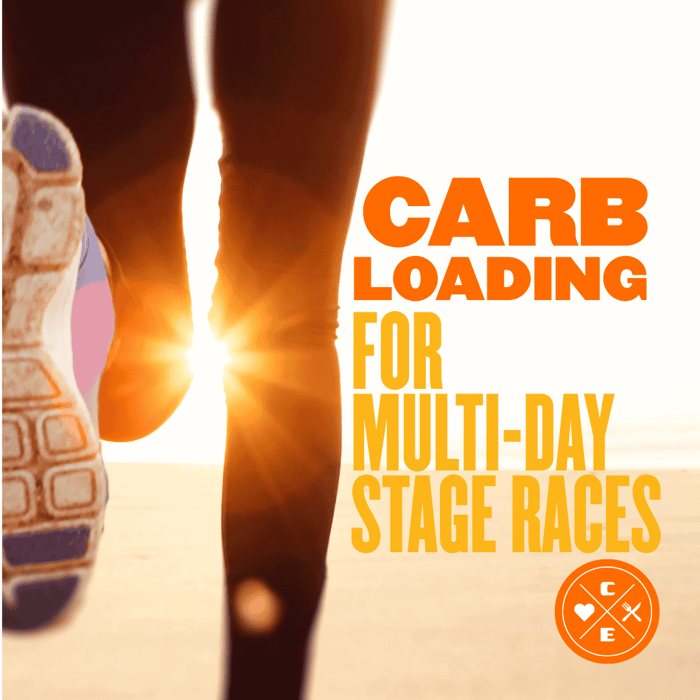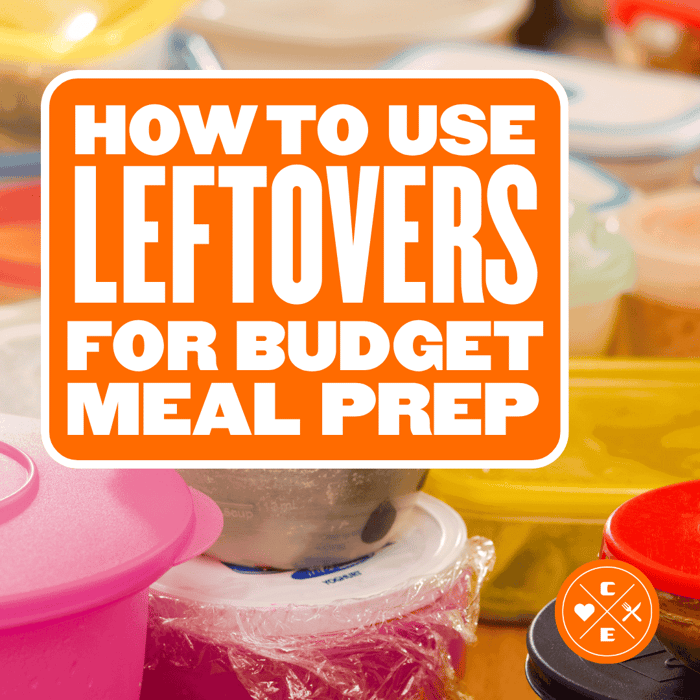Common Mistakes in Low-Carb Post-Workout Meals

Jason Nista
Nutrition
06/27/2025 9:54am
20 minute read
Table of Contents
- Ketosis: Post Workout Carb Timing: Thomas DeLauer
- Mistake 1: Eating Too Few Carbs After Exercise
- Mistake 2: Not Eating Enough Protein
- Mistake 3: Cutting Out Healthy Fats
- Mistake 4: Eating the Same Foods Every Day
- Mistake 5: Forgetting About Hydration and Electrolytes
- Solution: Chef-Prepared Low-Carb Meal Options
- Conclusion: Fix These Low-Carb Meal Mistakes
- FAQs
- FAQs
Want better recovery on a low-carb diet? Avoid these common post-workout mistakes:
- Skipping Carbs: Even on low-carb diets, consuming some carbs after exercise is key. Your muscles need glycogen (carb storage) to recover and perform better next time. Aim for 1.2g of carbs per kg of body weight within 4 hours post-workout.
- Not Enough Protein: Protein repairs and rebuilds muscles. Eat 20-40g of protein within 2 hours of exercise to maximize recovery and growth.
- Avoiding Healthy Fats: Healthy fats, like omega-3s, reduce inflammation and support recovery. Include sources like salmon, avocado, or nuts.
- Ignoring Variety: Eating the same foods daily can cause nutrient gaps. Rotate proteins, veggies, and fats for balanced nutrition.
- Forgetting Hydration and Electrolytes: Low-carb diets flush out water and electrolytes like sodium and magnesium. Rehydrate and replenish with water, leafy greens, and electrolyte supplements.
Quick Fix: Pair protein (e.g., whey or eggs) with small portions of high-GI carbs (like berries) and healthy fats (avocado or olive oil). Stay hydrated and consider chef-prepared meals for convenience.
These tips ensure better recovery, fewer nutrient gaps, and improved performance - even on a low-carb diet.
Ketosis: Post Workout Carb Timing: Thomas DeLauer
Mistake 1: Eating Too Few Carbs After Exercise
If you're following a low-carb diet, you might think skipping carbs after a workout is the way to go. While it aligns with low-carb goals or staying in ketosis, avoiding carbs completely post-exercise can actually hinder your recovery and hurt your performance in the long run.
Why Your Body Needs Carbs After Exercise
During intense workouts, your muscles burn through glycogen - a stored form of carbohydrates. In fact, type II muscle fibers can lose anywhere from 24-40% of their glycogen during workouts lasting over 45 minutes. Without replenishing these stores, your body struggles to recover properly.
"Carbohydrates are the main source of energy for our brains and bodies to function properly; they fuel our central nervous system and muscles." - Herbalife
Studies back this up: muscle glycogen levels increase by 66.8% when carbs are consumed after resistance training, compared to 56.4% when carbs and protein are consumed together. This glycogen boost not only speeds up recovery but also improves your performance in future sessions.
Carbs also play another key role - they trigger insulin release, which helps transport amino acids and nutrients directly into your muscle cells. If you delay eating carbs for a few hours post-workout, glycogen replenishment can slow by as much as 50%. That delay can leave you feeling sluggish and less prepared for your next workout.
So, how do you strike the right balance while sticking to a low-carb plan? Let’s break it down.
How Many Carbs Should You Eat?
The goal isn't to eliminate carbs after exercise but to eat just enough to replenish glycogen without overdoing it. Timing and portion size are everything. Sports nutrition experts suggest consuming 1.2 grams of carbs per kilogram of body weight each hour during the critical four-hour window after your workout.
For example, if you weigh 150 pounds (68 kg), you’d need around 82 grams of carbs immediately after exercising. For longer or more intense sessions, you can repeat this amount hourly for up to four hours.
After this initial window, you can shift your focus to meeting your overall daily carb goals. Pairing carbs with protein in a 4:1 ratio during those first few hours can also enhance recovery. For instance, eating 20 grams of protein alongside 80 grams of carbs is a smart approach.
To maximize glycogen replenishment, choose high glycemic index (GI) foods (above 70) and aim for a 2:1 mix of glucose to fructose. Some great low-carb-friendly post-workout options include berries, edamame, or small portions of nutrient-packed vegetables .
Mistake 2: Not Eating Enough Protein
Low-carb diets often miss the mark when it comes to protein intake, especially after workouts. Skimping on protein can slow muscle repair and growth, leaving you feeling fatigued and weak.
"If you aren't eating enough protein, you're going to experience things like physical fatigue, weakness, or pain in your joints or muscles because you're not adequately supporting tissue growth." - Sarah Wardlaw, MS, L/ATC, CES, Athletic Trainer, Mass General Brigham
How Protein Supports Muscle Recovery
When you strength train, your muscles develop tiny tears that need repairing. Protein is the building block that helps rebuild these tears, making your muscles stronger. Without enough protein, this recovery process stalls, undermining your hard work at the gym.
Science backs this up: consuming protein after exercise is key to repairing and strengthening muscles. Timing is also crucial. Muscles absorb nutrients most effectively right after a workout.
The International Society of Sports Nutrition (ISSN) suggests eating 20 to 40 grams of protein every 3 to 4 hours for better performance, recovery, and body composition. For post-workout recovery, aim for 15 to 25 grams of protein within 2 hours to maximize muscle growth.
For women, timing is even more important. Research shows that women oxidize less protein and leucine than men, and hormonal fluctuations during the menstrual cycle can reduce the efficiency of muscle protein synthesis.
"After exercise the body is most primed to utilise nutrients it receives for repair and restoration. It's recommended to eat 20-25g of protein and 40–60g of carbohydrate within the hour post-training. Men have a wider window for recovery of 3-4 hours." - Claire Small, Chief Clinical Officer & Consultant Physiotherapist
How Much Protein Do You Need?
Your daily protein needs depend on your weight and activity level. The Academy of Nutrition and Dietetics recommends 1.2–2.0 grams per kilogram of body weight per day to support muscle repair and recovery in active adults. A study by Morton et al. found that 1.6 grams per kilogram of body weight per day is ideal for building strength and lean muscle mass.
Here’s how that translates into real numbers:
| Your Weight | Daily Protein Intake |
|---|---|
| 100 lbs (45 kg) | 54 to 77 grams |
| 150 lbs (68 kg) | 82 to 116 grams |
| 200 lbs (91 kg) | 109 to 155 grams |
| 250 lbs (113 kg) | 136 to 192 grams |
Best Low-Carb Protein Foods for Post-Workout Meals
The best news? Many high-quality protein sources are naturally low in carbs, making them perfect for low-carb diets. Here are some top picks:
- Whey protein: A complete protein rich in leucine, essential for muscle growth. It’s also incredibly convenient for post-workout recovery.
- Meat and fish: Options like wild-caught salmon or grass-fed rib eye deliver protein and healthy fats, fitting perfectly into a low-carb, high-fat diet.
- Eggs: Packed with protein and fat, eggs are highly bioavailable and easy to digest. Research even shows that eating whole eggs (instead of just egg whites) is better for muscle protein synthesis after a workout.
- Collagen powder: Great for supporting collagen synthesis, which is important for recovery, and it’s keto-friendly.
For those with busy schedules, ready-made meals can be a lifesaver. Services like Clean Eatz Kitchen offer high-protein, low-carb options that simplify post-workout nutrition. Their portion-controlled meals eliminate the need for measuring and cooking, giving you the nutrients you need without the extra hassle.
Mistake 3: Cutting Out Healthy Fats
Some people avoid fats in their post-workout meals, fearing that they might slow digestion or interfere with nutrient absorption. But skipping healthy fats can actually be a misstep. These fats are essential for hormone production, cell membrane health, and absorbing key nutrients your body needs after exercise.
How Healthy Fats Aid Recovery
Once you've ensured you're getting enough protein, adding healthy fats can significantly enhance your recovery. Omega-3 fatty acids, in particular, are known for reducing inflammation and improving nutrient absorption. For example, a 4-week study found that young men who consumed omega-3 supplements experienced less muscle soreness and showed lower markers of inflammation compared to those who took a placebo. The omega-3 dose in the study was about 3 grams, which is roughly the amount found in a 4-ounce serving of Atlantic mackerel.
"Fat is also not typically emphasized in the recovery period since the emphasis is on rehydrate, rebuild, replenish, fluids/electrolytes, protein, carbohydrates. Too much fat could crowd out other key nutrients. However, there is some evidence that [omega‑3] fats in particular could play an important role in reducing inflammation in the post‑exercise period and make muscles more receptive to protein, thereby improving recovery and remodeling."
– Michelle Rockwell, PhD, RDN, and an instructor in the department of human nutrition, foods, and exercise at Virginia Tech
Healthy fats also help curb hunger, reducing the temptation to make poor food choices later. This is especially beneficial for those following low-carb diets. Additionally, fats support immune health, endocrine function, and the absorption of fat-soluble vitamins like A, D, E, and K. They even help regulate glucose breakdown, ensuring that post-workout carbs are used effectively for recovery.
Best Sources of Healthy Fats
The type of fat matters. Focus on unsaturated fats while steering clear of processed or trans fats. Here are some excellent options to include:
- Avocados: Great for smoothies, salads, or as avocado oil on vegetables.
- Nuts and Seeds: Add mixed nuts, flax seeds, or hemp hearts to snacks, salads, or smoothies.
- Olive Oil and Olives: Perfect for salads or drizzled over roasted veggies.
- Fatty Fish: Options like salmon, mackerel, and sardines provide both protein and omega-3s. For instance, a grilled or baked filet of wild-caught fish pairs well with salads or roasted vegetables. It's worth noting that only 6% of collegiate athletes meet the recommended 500 mg of EPA and DHA intake set by the Academy of Nutrition and Dietetics.
For most people, fats should make up 25 to 35 percent of daily calories, with athletes typically aiming for 20 to 35 percent. Since fat provides 9 calories per gram - more than double the calories of protein or carbs - it’s an efficient energy source for recovery.
"The best recovery diet would be to prioritize carbohydrates, especially those with a moderate to high glycemic index, not too many proteins, but rather some fat to secure adequate energy to be able to be in energy balance as soon after the exercise as possible."
– Bente Kiens, PhD, Professor of Molecular Physiology at the University of Copenhagen
For those with packed schedules, meal prep services like Clean Eatz Kitchen can simplify the process. Their chef-prepared meals ensure you’re getting a balanced mix of macronutrients, including the healthy fats that are so important for recovery. Adding these fats to your post-workout routine not only supports recovery but also keeps your meals flavorful and satisfying.
sbb-itb-1989a25
Mistake 4: Eating the Same Foods Every Day
Sticking to the same post-workout meal every day might seem convenient, but it can lead to nutrient gaps and boredom. For instance, while salmon is a great source of omega-3 fatty acids for reducing inflammation, turkey provides a different set of amino acids that are essential for muscle repair and growth.
Why Variety Matters in Your Diet
When your diet lacks variety, it can result in nutrient deficiencies that affect recovery and overall health. A 2013 CDC survey revealed that only 13.1% of Americans met daily fruit intake recommendations, and just 8.9% consumed enough vegetables. Many athletes fall into the trap of repetitive meals, neglecting the diverse nutrients needed for optimal recovery.
Switching up your protein sources - like chicken, grass-fed beef, wild-caught fish, eggs, or plant-based options such as hemp seeds - along with varying your vegetables and fats, ensures you get a broader spectrum of antioxidants, phytonutrients, and essential fatty acids. Keep in mind that nutritional needs differ based on factors like age, gender, body composition, and metabolism. Embracing variety in your meals can lead to more balanced nutrition and creative meal ideas.
How Chef-Prepared Meals Can Help
Chef-prepared meals are a simple way to add variety to your diet while meeting your nutritional goals. According to research, 65% of Americans are more inclined to buy meals labeled as healthy, and 70% prioritize convenience when choosing meals. Professional chefs combine ingredients in innovative ways to ensure meals are both nutritionally balanced and flavorful.
Take Clean Eatz Kitchen, for example. Their rotating monthly menu offers options like herb-crusted salmon with roasted vegetables or spicy turkey stir-fry, keeping your meals exciting and nutrient-rich. Their High Protein Meal Plan, priced at $59.95, allows you to customize meals to your dietary needs - whether you’re after gluten-free options, weight loss support, or extra protein for intense training. Plus, the convenience of chef-prepared meals saves you the time and effort of planning, shopping, and cooking, so you can focus on recovery. This variety not only keeps your meals interesting but also supports a well-rounded post-workout recovery plan.
Mistake 5: Forgetting About Hydration and Electrolytes
When following a low-carb diet, it’s easy to get caught up in tracking macros and forget about something just as critical: staying hydrated and maintaining proper electrolyte levels. This becomes even more crucial after a workout, when your body has already lost fluids and minerals through sweat. Unlike higher-carb diets, which naturally help the body retain water, low-carb diets present unique hydration challenges that can affect recovery.
Why Hydration Matters Even More on Low-Carb Diets
Low-carb diets lower insulin levels, which signals the kidneys to expel more sodium. This leads to greater fluid loss, making hydration a bigger concern.
Add exercise into the equation, and the stakes rise. Losing just 2% of your body weight in fluids can negatively impact performance. During intense workouts, you can lose up to 2 quarts of fluid per hour, and endurance activities can drain as much as 3 quarts per hour.
"By the time you actually feel thirsty, it's too late ― you're already too low on fluids", warns Rayven Nairn, M.S., R.D., L.D..
Dehydration doesn’t just sap your energy - it can also hurt your motor skills, decision-making, and focus. These effects can extend well beyond your workout, interfering with both recovery and everyday tasks.
"Hydration during a game, tournament, or workout ― not just before and after ― can fall below the radar of an athlete and their trainer, but performance depends on it. Getting dehydrated puts you at risk of headaches, cramping, and more serious complications like heat stroke or other heat disease", explains Rayven Nairn, M.S., R.D., L.D..
To avoid these issues, make rehydration a priority. After exercise, aim to drink one and a half times the amount of fluid you lost, spread out over the next two to six hours. For example, if you drop 2 pounds during your workout, plan to drink about 48 ounces of water in the hours that follow.
Replacing Electrolytes: Foods and Supplements That Help
Rehydrating is just part of the equation - you also need to replace the electrolytes lost through sweat. Sodium, potassium, magnesium, calcium, and chloride each play a key role in recovery. For example, 57% of Americans don’t meet the recommended daily intake for magnesium, a shortfall that can be even more pronounced on low-carb diets.
Here’s a quick breakdown of how these electrolytes support recovery:
| Electrolyte | Role in Recovery |
|---|---|
| Sodium | Maintains fluid balance, supports nerve function, and prevents muscle cramps |
| Potassium | Regulates muscle contractions, prevents cramps, and balances fluids inside cells |
| Magnesium | Relaxes muscles, reduces cramps, and helps with energy production |
| Calcium | Supports muscle contractions, strengthens bones, and prevents spasms |
| Chloride | Works with sodium to maintain fluid balance |
Whole foods can be a great way to replenish electrolytes naturally. Leafy greens like spinach, kale, and collard greens are rich in calcium and magnesium. Avocados are an excellent source of potassium, while nuts and seeds - such as hemp, pumpkin seeds, and almonds - offer magnesium along with healthy fats. For sodium, consider adding salt to your meals or sipping on 1–2 cups of bone broth daily.
If food alone isn’t enough, electrolyte supplements can fill the gap, especially during the early stages of a low-carb diet or after intense workouts. Low-carb dieters often need 3–7 g of sodium, 3,000–4,700 mg of potassium, and 400 mg of magnesium daily. When choosing a magnesium supplement, look for easily absorbed forms like magnesium glycinate, magnesium gluconate, or magnesium citrate. A dose of 200–400 mg per day can help reduce muscle cramps and improve sleep quality.
For a DIY electrolyte drink, mix 16 oz of water with ½ tsp of salt, ¼ tsp of Morton Lite Salt, 1 tsp of magnesium powder, and 1 tbsp of lemon juice. This homemade option allows you to control the ingredients while ensuring you get the right balance of electrolytes for recovery.
Although the CDC recommends 2,300 mg of sodium per day for the general population, low-carb dieters typically require more. Consuming sodium about 30 minutes before intense exercise can also help your body retain fluids more effectively.
Solution: Chef-Prepared Low-Carb Meal Options
Chef-prepared meals take the stress out of managing low-carb post-workout nutrition. Instead of worrying about balancing macronutrients or spending hours in the kitchen, you can enjoy expertly crafted meals delivered straight to your doorstep.
Why Chef-Prepared Meals Work
These meals are designed to address common nutrition challenges. Professional chefs ensure they provide balanced nutrition while sticking to dietary guidelines, so you don’t have to worry about missing key nutrients like healthy fats or eating too few carbs. Pre-portioned servings take the guesswork out of meal prep, helping you hit your nutritional targets without overthinking. Plus, the time savings are undeniable - no more planning, grocery shopping, or extensive cooking sessions.
By combining convenience with precision, chef-prepared meals help you avoid typical post-workout nutrition mistakes, like insufficient carb intake or a monotonous diet. A great example of this approach is how Clean Eatz Kitchen tailors its recovery meals.
Clean Eatz Kitchen: Simplifying Recovery Nutrition
![]()
Clean Eatz Kitchen has designed its meal options to tackle the challenges of post-workout recovery. Their high-protein meals, with 30g of protein per serving, make it easier to support muscle recovery. For those committed to low-carb lifestyles, their keto-friendly options align seamlessly with your goals. Each meal is under 500 calories and offers a well-rounded mix of macronutrients.
To keep things interesting, Clean Eatz Kitchen rotates its menu monthly, ensuring variety in your recovery meals. The meals are delivered frozen and microwave-ready, so you can refuel quickly without sacrificing quality. They’re also competitively priced, nutritionally balanced, and available with nationwide delivery and free shipping.
With over 12,000 five-star reviews and a decade of helping customers live healthier lives, Clean Eatz Kitchen has become a trusted name in nutrition. Considering that diet can account for up to 75% of your weight management success, having access to reliable, ready-made meals can be a game-changer for your fitness journey.
Conclusion: Fix These Low-Carb Meal Mistakes
Getting your low-carb post-workout nutrition on point involves tackling common mistakes head-on to boost recovery and fitness results. Let’s break down some key strategies, starting with protein.
Protein is crucial. Aim for 1.0–1.2 grams of protein per pound of lean body mass daily, spaced evenly across meals every 4 to 6 hours. Resistance training can stimulate muscle protein synthesis for up to 48 hours, so keeping a steady supply of amino acids is vital. For instance, 45 grams of whey protein can support muscle growth for up to 3 hours, while high-protein meals extend this benefit for 5 to 6 hours.
Stay hydrated and replenish electrolytes. Even a 2% drop in body weight from water loss can hurt your performance.
"By the time you actually feel thirsty, it's too late ― you're already too low on fluids." - Rayven Nairn, MS, RDN, LDN, Dietitian with the Johns Hopkins University Student Health and Wellness Center
Mix up your protein and veggie choices. Rotating these ensures you’re getting a wide range of nutrients.
Beyond macronutrient timing, meal composition matters. Pair protein with healthy fats and low-carb vegetables to optimize recovery. Using tools like a keto calculator can help you zero in on your specific macro needs.
If you’re short on time or unsure about meal prep, chef-prepared meals can simplify things. Balanced options, like those from Clean Eatz Kitchen, take the guesswork out of eating, allowing you to focus on your workouts while staying on track with your goals.
FAQs
Why should a low-carb post-workout meal include some carbs, and how much is recommended?
Including some carbohydrates in your low-carb post-workout meal plays a key role in replenishing glycogen stores - your body's main energy reserve during exercise. This not only helps you recover faster but also gets your muscles ready for the next workout.
A good rule of thumb is to consume 0.5 to 1.0 grams of carbs per kilogram of body weight, though you can tweak this based on how intense your workout was and your specific fitness goals. For instance, if you weigh 150 pounds (around 68 kilograms), your post-workout meal could include somewhere between 34 and 68 grams of carbs. Pair those carbs with a quality protein source to further support muscle repair and recovery.
Why are healthy fats important for post-workout recovery, and which ones should I include in my low-carb meals?
Healthy fats play a key role in post-workout recovery by helping to reduce inflammation, supporting hormone balance, and delivering steady energy. Adding the right kinds of fats to your low-carb meals can boost muscle recovery and improve overall performance.
Great sources of healthy fats include monounsaturated fats like those in avocados, olive oil, and nuts. Another excellent option is omega-3 fatty acids, commonly found in fatty fish like salmon. These fats not only support recovery but may also ease muscle soreness, making them a smart choice for your post-workout nutrition.
How can I stay hydrated and maintain electrolyte balance after a workout on a low-carb diet?
Staying hydrated and keeping your electrolytes in check after a low-carb workout plays a big role in recovery. Incorporating electrolyte-packed foods like leafy greens, avocados, and nuts into your meals can provide key minerals such as potassium and magnesium. You can also sprinkle a little salt on your food or in your drinks to help replace the sodium lost while exercising.
If you need a quicker hydration boost, try electrolyte-infused beverages or whip up a simple homemade option by mixing water with a pinch of salt and a squeeze of lemon. Make sure to sip water consistently throughout the day and listen to your body's thirst cues to stay ahead of dehydration. These small steps can make a big difference in how well you recover and perform.
Related Articles
How to Boost Micronutrient Intake for Brain Health
16 minute read
Carb Loading for Multi-Day Stage Races
15 minute read
How To Use Leftovers For Budget Meal Prep
18 minute read



